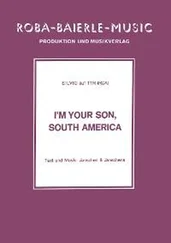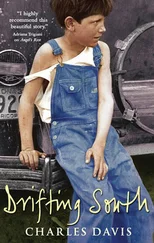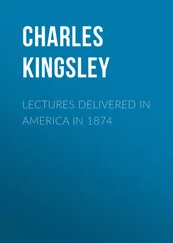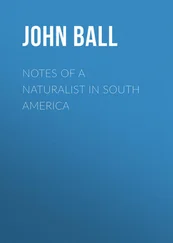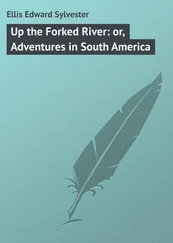Charles Waterton - Wanderings in South America
Здесь есть возможность читать онлайн «Charles Waterton - Wanderings in South America» — ознакомительный отрывок электронной книги совершенно бесплатно, а после прочтения отрывка купить полную версию. В некоторых случаях можно слушать аудио, скачать через торрент в формате fb2 и присутствует краткое содержание. Жанр: Путешествия и география, История, foreign_edu, foreign_antique, foreign_prose, на английском языке. Описание произведения, (предисловие) а так же отзывы посетителей доступны на портале библиотеки ЛибКат.
- Название:Wanderings in South America
- Автор:
- Жанр:
- Год:неизвестен
- ISBN:нет данных
- Рейтинг книги:5 / 5. Голосов: 1
-
Избранное:Добавить в избранное
- Отзывы:
-
Ваша оценка:
- 100
- 1
- 2
- 3
- 4
- 5
Wanderings in South America: краткое содержание, описание и аннотация
Предлагаем к чтению аннотацию, описание, краткое содержание или предисловие (зависит от того, что написал сам автор книги «Wanderings in South America»). Если вы не нашли необходимую информацию о книге — напишите в комментариях, мы постараемся отыскать её.
Wanderings in South America — читать онлайн ознакомительный отрывок
Ниже представлен текст книги, разбитый по страницам. Система сохранения места последней прочитанной страницы, позволяет с удобством читать онлайн бесплатно книгу «Wanderings in South America», без необходимости каждый раз заново искать на чём Вы остановились. Поставьте закладку, и сможете в любой момент перейти на страницу, на которой закончили чтение.
Интервал:
Закладка:
—‘Omnes eodem cogimur.’
However, it pleased Heaven, in its mercy, to spare us. The succeeding shocks became weaker and weaker, till at last we felt no more of them.”
A courageous sea-captain at last sailed away in safety, though chased by the Spanish brigs of war, and after thirty days at sea Waterton landed in England.
Another uncle had estates in Demerara, and in the autumn Waterton sailed thither from Portsmouth. He landed at Georgetown, Demerara, in November, 1804, and was soon delighted by the natural history of the tropical forest. In 1806 his father died, and he returned to England. He made four more journeys to Guiana, and, in 1825, published an account of them, entitled “Wanderings in South America, the North-West of the United States, and the Antilles, in the years 1812, 1816, 1820, and 1824; with original instructions for the perfect preservation of birds, &c., for cabinets of natural history.” The two first journeys are now reprinted from the original text. The book at once attracted general attention, became popular, and has taken a place among permanent English literature. Unlike most travellers, Waterton tells nothing of his personal difficulties and discomforts, and encumbers his pages with neither statistics nor information of the guidebook kind. His observation of birds and beasts, written down in the forests, and the description of the forests themselves, fill all his pages. The great ant-eater and the sloth were for the first time accurately described by him. He showed that the sloth, instead of being a deformed, unhappy creature, was admirably adapted to its habitat. He explained the use of the great claws of the ant-eater, and the curious gait which they necessitated. The habits of the toucan, of the houtou, of the campanero, and of many other birds, were first correctly described by him. He determined to catch a cayman or alligator, and at last hooked one with a curious wooden hook of four barbs made for him by an Indian.
The adventure which followed is perhaps one of the most famous exploits of an English naturalist.
“We found a cayman, ten feet and a half long, fast to the end of the rope. Nothing now remained to do, but to get him out of the water without injuring his scales, ‘hoc opus, hic labor.’ We mustered strong: there were three Indians from the creek, there was my own Indian, Yan; Daddy Quashi, 1 1 The negroes of the West Coast of Africa, as I am informed by Dr. Kodjoe Benjamin William Kwatei-kpakpafio, of Accra, take their names from the day of the week on which they are born: Quashi (Kwasi) is Sunday; Kodjoe, Monday; Koffie, Tuesday.—N. M.
the negro from Mrs. Peterson’s; James, Mr. R. Edmonstone’s man, whom I was instructing to preserve birds; and, lastly, myself.
“I informed the Indians that it was my intention to draw him quietly out of the water, and then secure him. They looked and stared at each other, and said I might do it myself, but they would have no hand in it; the cayman would worry some of us. On saying this, ‘consedere duces,’ they squatted on their hams with the most perfect indifference.
“The Indians of those wilds have never been subject to the least restraint; and I knew enough of them to be aware, that if I tried to force them against their will, they would take off, and leave me and my presents unheeded, and never return.
“Daddy Quashi was for applying to our guns, as usual, considering them our best and safest friends. I immediately offered to knock him down for his cowardice, and he shrank back, begging that I would be cautious, and not get myself worried; and apologising for his own want of resolution. My Indian was now in conversation with the others, and they asked me if I would allow them to shoot a dozen arrows into him, and thus disable him. This would have ruined all. I had come above three hundred miles on purpose to get a cayman uninjured, and not to carry back a mutilated specimen. I rejected their proposition with firmness, and darted a disdainful eye upon the Indians.
“Daddy Quashi was again beginning to remonstrate, and I chased him on the sand-bank for a quarter of a mile. He told me afterwards, he thought he should have dropped down dead with fright, for he was firmly persuaded, if I had caught him, I should have bundled him into the cayman’s jaws. Here then we stood, in silence, like a calm before a thunder-storm. ‘Hoc res summa loco. Scinditur in contraria valgus.’ They wanted to kill him, and I wanted to take him alive.
“I now walked up and down the sand, revolving a dozen projects in my head. The canoe was at a considerable distance, and I ordered the people to bring it round to the place where we were. The mast was eight feet long, and not much thicker than my wrist. I took it out of the canoe, and wrapped the sail round the end of it. Now it appeared clear to me, that if I went down upon one knee, and held the mast in the same position as the soldier holds his bayonet when rushing to the charge, I could force it down the cayman’s throat, should he come open-mouthed at me. When this was told to the Indians, they brightened up, and said they would help me to pull him out of the river.
“‘Brave squad!’ said I to myself, ‘“Audax omnia perpeti,” now that you have got me betwixt yourselves and danger.’ I then mustered all hands for the last time before the battle. We were, four South American savages, two negroes from Africa, a creole from Trinidad, and myself, a white man from Yorkshire. In fact, a little Tower of Babel group, in dress, no dress, address, and language.
“Daddy Quashi hung in the rear; I showed him a large Spanish knife, which I always carried in the waistband of my trousers: it spoke volumes to him, and he shrugged up his shoulders in absolute despair. The sun was just peeping over the high forests on the eastern hills, as if coming to look on, and bid us act with becoming fortitude. I placed all the people at the end of the rope, and ordered them to pull till the cayman appeared on the surface of the water and then, should he plunge, to slacken the rope and let him go again into the deep.
“I now took the mast of the canoe in my hand (the sail being tied round the end of the mast) and sank down upon one knee, about four yards from the water’s edge, determining to thrust it down his throat, in case he gave me an opportunity. I certainly felt somewhat uncomfortable in this situation, and I thought of Cerberus on the other side of the Styx ferry. The people pulled the cayman to the surface; he plunged furiously as soon as he arrived in these upper regions, and immediately went below again on their slackening the rope. I saw enough not to fall in love at first sight. I now told them we would run all risks, and have him on land immediately. They pulled again, and out he came—‘monstrum horrendum, informe.’ This was an interesting moment. I kept my position firmly, with my eye fixed steadfast on him.
“By the time the cayman was within two yards of me, I saw he was in a state of fear and perturbation: I instantly dropped the mast, sprang up, and jumped on his back, turning half round as I vaulted, so that I gained my seat with my face in a right position. I immediately seized his fore-legs, and by main force twisted them on his back; thus they served me for a bridle.
“He now seemed to have recovered from his surprise, and probably fancying himself in hostile company, be began to plunge furiously, and lashed the sand with his long and powerful tail. I was out of reach of the strokes of it, by being near his head. He continued to plunge and strike, and made my seat very uncomfortable. It must have been a fine sight for an unoccupied spectator.
“The people roared out in triumph, and were so vociferous, that it was some time before they heard me tell them to pull me and my beast of burthen farther in. I was apprehensive the rope might break, and then there would have been every chance of going down to the regions under water with the cayman. That would have been more perilous than Arion’s marine morning ride:—
Читать дальшеИнтервал:
Закладка:
Похожие книги на «Wanderings in South America»
Представляем Вашему вниманию похожие книги на «Wanderings in South America» списком для выбора. Мы отобрали схожую по названию и смыслу литературу в надежде предоставить читателям больше вариантов отыскать новые, интересные, ещё непрочитанные произведения.
Обсуждение, отзывы о книге «Wanderings in South America» и просто собственные мнения читателей. Оставьте ваши комментарии, напишите, что Вы думаете о произведении, его смысле или главных героях. Укажите что конкретно понравилось, а что нет, и почему Вы так считаете.

